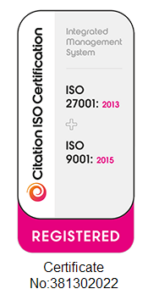Technology as an Enabler in Virtual Learning and Development
Technology in learning and development is an enabler; it should never be used as a prop to replace learner-centric engagement.
However, in the virtual world where that one-on-one classroom connection is not possible, a trusted quality technology solution is essential to enabling the coach to focus on the audience and enabling the audience to focus on engaging and learning.
In the pre-COVID world, my main learning and development sessions tended to take place face-to-face, building energy and enthusiasm and supporting the learner to develop and grow. With that rapport and trust established, people tended to be more tolerant if technology glitches happened in virtual follow-up sessions. At that point, the learners have met you and they know that what you have to offer is valuable.
With all coaching now handled virtually, it’s important to be able to anchor learners in the experience right away and that means the technology needs to work so you as a facilitator can listen, connect and engage with your audience.
In this more complex environment, having an experienced technology partner removes any uncertainty and makes it possible to recreate the classroom experience through a solution that can better facilitate a connection with the audience.
In my own experience, working with Open Audience has allowed me to recreate the energy that would normally be in the classroom because I can tell them what I want to achieve, and I can trust them to not only deliver that solution but also to be seamless in the execution on the day.
That lets me concentrate on connecting with the audience, asking the right questions, engaging with the feedback, and ensuring everyone is involved and getting what they want from the training.
A trusted facilitator
I am fairly technology savvy, and before the pandemic I would regularly run online training on my own, even with quite big groups of people. Today, even though my technology skills have advanced with the switch to everything being virtual, I would always opt to have a technology partner or a second facilitator if budget allows.
If the technology is being managed separately, I can concentrate on my priorities, which are to be with my audience, connecting with them, creating a fun environment and agitating their thinking.
A good technology partner removes the worry of technology failing during the session, or the presenter not being heard, or the breakout spaces not working. Unfortunately, when that does happen, it becomes a cloud that affects the whole session for the learner.
While many people are suffering from technology fatigue, by being creative and able to innovate in the virtual space and working with a partner with that same ethos, I’ve had overwhelmingly positive feedback.
People attending the sessions have said they are unlike anything else they have experienced online.
All too often, virtual meetings involve a presenter talking ‘at’ the audience.
As a result, people have started turning off their cameras, going on mute, reading their emails and generally disengaging. My sessions, on the other hand, require the audience to contribute and give their full attention, just as they would in a classroom.
There is also, understandably, a real sense of camera fatigue. People have back-to-back meetings throughout their day. I’m mindful of the stress this places on learners, so I adapt sessions to keep them shorter and allow people to step away for both a physical and mental break.
I have also adopted a more flexible approach when it comes to cameras and mics since some people are grateful for the opportunity to be off camera and to interact via chat. So long as the learners are engaging, I don’t mind what approach they prefer to take.
Sometimes with one-to-one coaching just using audio allows you to really listen for voice expression or choice of phrases. For me, it’s about working with the individual to get the best from and for them, and that varies from one person to the next.
Learning happens when people engage and can embed what they have learned in their world and with their colleagues.
Creating a flexible, connected environment, one supported by innovative technology, and facilitating that embedded learning in the online space has helped me to recreate the same energy enjoyed in the classroom.
Lucy Philip, Founder, Director and Lead Consultant of Perfectly Blended, is a certified learning and development coach. With more than 20 years of experience in professional development, Lucy helps global organisations and individuals to develop their leadership and management skills. A nurse by training, Lucy spent more than 10 years at GSK, including many years as a coach and training manager and senior leader.

